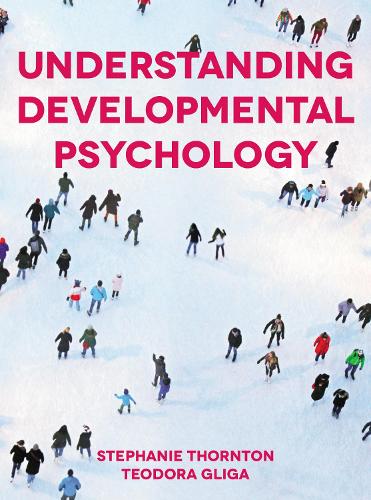
Understanding Developmental Psychology
(Paperback, 2nd edition)
Publishing Details
Understanding Developmental Psychology
By (Author) Stephanie Thornton
By (author) Teodora Gliga
Bloomsbury Publishing PLC
Red Globe Press
1st November 2020
2nd edition
United Kingdom
Classifications
Tertiary Education
Non Fiction
Age groups and generations
155
Physical Properties
Paperback
640
Width 192mm, Height 258mm, Spine 30mm
1210g
Description
Explorative, responsive and research-led, this ground-breaking textbook offers students invaluable insights into the passage of human development from birth to adulthood. Understanding Developmental Psychology engages students from the outset with its conversational style, taking them on a fascinating journey through their own physical, cognitive, social and emotional development. With a focus on developing critical thinking skills, the book encourages students to engage with cutting-edge research in areas such as replication, gender fluidity, the ageing global population, the implications of social media and recent breakthroughs in neurodevelopment. This textbook not only covers the foundations of developmental psychology but also offers a, fresh perspective on the latest developments in the field. This comprehensive introduction is ideal for both undergraduate and postgraduate students taking courses in developmental psychology. Critical and accessible, the book connects students to the field of developmental psychology in an accessible and culturally inclusive way.
Author Bio
STEPHANIE THORNTON taught Developmental Psychology for 25 years at the University of Sussex. Her research has covered a broad range of topics in social and cognitive development, with a focus on the processes through which new ideas, new understanding and new behaviours develop in both children and adults: theoretically intriguing topics that also have real practical implications. She is the author of Children Solving Problems (Harvard University Press, 1998) and Growing Minds (Palgrave, 2002) as well as Understanding Human Development (Palgrave, 2008). TEODORA GLIGA joined the School of Psychology at the University of East Anglia in 2018. In her research, she focuses on understanding how young humans succeed in acquiring huge amounts of knowledge despite limited attention and memory. In particular, she investigates the role that caregivers and the children themselves have in actively creating learning experiences.
